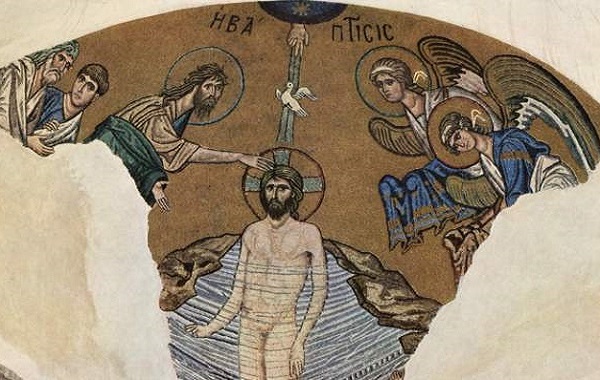Meditation on the Epiphany [2]
6 January 2023[Previous post: https://bit.ly/396O614]
The day after Christmas is consecrated to the ‘synaxis of the Blessed Virgin Mary: all believers are invited to assemble in honour of her who made the Incarnation humanly possible. In the same way, the day after Epiphany (January 7) is consecrated to the ‘synaxis’ of John the Precursor, who baptized Jesus and, in a way, was the agent in presenting him to the world. In the chants for this feast, at vespers and matins, the Church multiplies the praises of the Precursor: ‘Thou who art Light in the flesh…filled with the Spirit…swallow of grace…who hast appeared as the last of the prophets… and the greatest among them…’. The very richness of these praises makes it a little difficult for us, perhaps, to discern clearly what it is that we, as men, have to learn from John. During the course of the liturgical year, we shall have other opportunities to return to the person and the ministry of this man who was not only the Precursor and the Baptist, but also the Friend of the Bridegroom, the new Elijah, and the martyr who gave his life for the divine law. Today it will be enough for us to concentrate on two facets of John’s ministry, and these are indicated by the gospel and epistle which are read at the liturgy.

The epistle, already read at Nones on the eve of Epiphany (Acts 19, 1-8) tells of Paul’s meeting at Ephesus with the disciples who had received only John’s baptism. Paul explains to them that John conferred a baptism of repentance on the people so that they might believe in him who was to come. But Paul baptised these Ephesians ‘in the name of the Lord Jesus’. Paul’s words point exactly to the greatness and the limitations of John’s ministry. On the one hand, we must receive John’s baptism of penitence, that is to say, listen to John when he tells us what the conditions are for entry into the messianic kingdom and allow ourselves to be touched by his call to repentance. On the other hand, John’s baptism is not sufficient. We must go to Jesus himself. We must be baptized in the name of our Saviour and in the Holy Spirit. This does not simply involve the sacramental rites. What matters is our constant inner attitude. I cannot go to Jesus if I have not listened to John’s voice, and if I have not repented. But I cannot remain in the state of repentance that John preached: the new justice that I must move on to is that which Jesus alone procures.
The nature of this new justice is indicated in the gospel read at the liturgy (John 1, 29-34). This passage, which describes Jesus’s baptism by the Precursor, begins with the following words: ‘John seeth Jesus coming unto him and saith, Behold the Lamb of God, which taketh away the sin of the world’. This is the second facet of John’s ministry: not only does he preach conversion and confer a baptism of repentance, but he shows us Jesus as the Lamb of God and the propitiation for all our sins. John declares that Jesus accomplishes what the baptism of repentance cannot do: the Saviour takes upon his own shoulders the sin of the world and thus cleanses men. John’s ministry, therefore, will only be effectual for us if it produces these two results: first that it rouses us to repentance, and then that it shows us the Lamb who offers himself in sacrifice as reparation for our sins. The ministry, or, as we might say, the gospel of the Precursor has a third aspect which will be revealed to us later: the relationship between the Bridegroom and the friend of the Bridegroom. But this aspect is not yet made explicit in the feast of Epiphany. What the ‘synaxis’ of the Precursor suggests to us today is the breaking of our hearts which repentance demands, and the act of faith by which we entrust our sins to the Lamb of God, and inwardly experience redemption.






